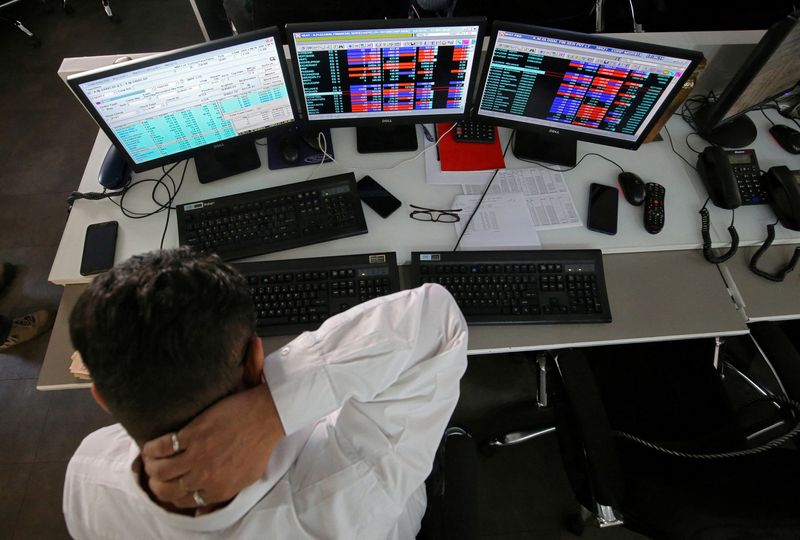By Jaspreet Kalra and Nimesh Vora
MUMBAI (Reuters) - Millions of Indian retail traders are exploring alternative ways to earn profits ahead of stricter regulations on trading equity derivatives next month, but their transition is unlikely to be smooth, investors and brokers say.
Derivatives trading in India has boomed in the past few years, with short-term index options bets pushing up the notional value of options traded on the country's exchanges to the highest globally.
Regulatory data show retail traders contributed to more than a third of volume in the derivatives market, leading the Securities and Exchange Board of India (SEBI) to warn of risks and reduce the number of contracts offered by exchanges. The regulator also tripled the minimum trading amount.
The new rules go into effect on Nov. 20.
Commodity derivatives, foreign exchange and intraday equity bets, alongside holding options contracts for longer, are some alternatives traders could tap, according to nine retail traders and top brokerages Reuters spoke to.
Zerodha, India's second-largest online brokerage, estimates trading volumes for equity options are likely to drop about 30% after the new rules kick in.
The new rules "are sufficient enough to make retail traders want to trade less," Faisal Mohammed, vice president of trading operations at Zerodha, said.
He expects intra-day equity trading to pick up and reckons that the "commodity side" may increase too.
For Saurav Samant, 26, trading options was a way out of his job in the merchant navy, where he spent months at sea on a cargo ship.
He quit his job a year ago and made money by trading options linked to the NSE bank index - a popular weekly contract which will be phased out next month. Samant said he now intends to trade the available weekly options and has been learning how to trade FX.
India's largest exchange NSE will only offer a weekly options contract linked to the Nifty 50 index while older peer BSE will offer weekly contracts linked only to the Sensex 30, the exchanges have said.
HOUSEHOLDS FINANCES AT RISK
Last month, a SEBI study showed that nearly all traders in the equity derivatives segment in the 12 months through March were retail, and more than 90% of these traders incurred losses.
These losses, coupled with the unchecked growth in futures and options trading prompted Finance Minister Nirmala Sitharaman to warn of risks to household finances.
The monthly notional value of derivatives traded was 10,923 trillion rupees ($130 trillion) across two exchanges in August - the highest globally, data from the regulator showed.
Cusrow Sadri, 50, is among the few retail traders for whom options trading was profitable.
Trading profits surpassed what he was earning from his corporate job, prompting him to quit and trade full time.
Sadri, who was selling options that expire the next day, is now considering holding options contracts for longer and moving to commodity derivatives, which are not covered by the new rules, he said.
However, traders are not expected to have a smooth transition from options trading to other segments.
"There is no market in India which can remotely match the liquidity, the depth that the equity options provide," Amit Sahita, a director at Fincode Advisory Services, a wealth management firm, said.

"That is why a part of the option volumes that is lost (because of the new rules) will not find a home anywhere at all."
($1 = 84.0120 Indian rupees)